Pros and cons of Amazon Prime Day
Sure, toilet paper is 25% off. But what about climate change?

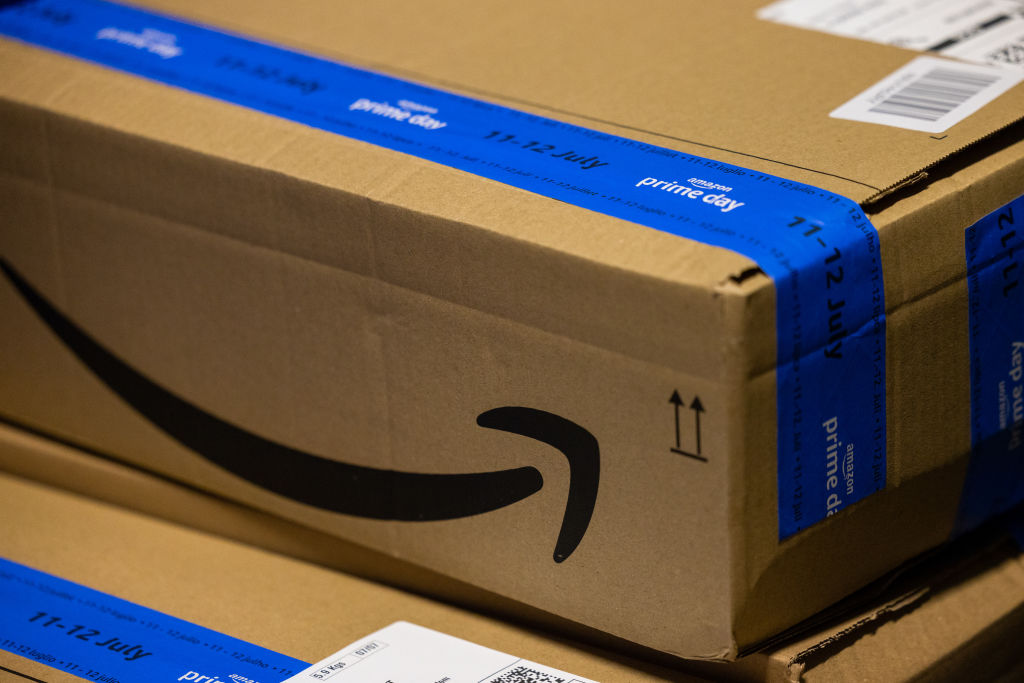
A free daily email with the biggest news stories of the day – and the best features from TheWeek.com
You are now subscribed
Your newsletter sign-up was successful
'Tis the season for two-day shipping ... and woefully wondering whether you're doing yourself, the environment and the economy a disservice by buying into Amazon's Prime Day, the retail behemoth's annual July sale known for rampant markdowns and low prices. Below, we've rounded up a few arguments both for and against the de facto holiday for anyone deciding how best to celebrate.
Pro: "A rising tide lifts all ships"
What initially began as Amazon's answer to slow consumer activity in the summer months now provides a bit of mid-year relief for other struggling retailers as they wait for back-to-school season to begin in earnest. "A rising tide lifts all ships," said Salesforce's Caila Schwartz in 2022. "Prime Day provides a much-needed boost to the retail industry, with its halo effect increasing sales for even sites other than Amazon." For instance, though "global online sales for non-Amazon sites were down 12%" in 2022 "compared to Prime Day 2021," Schwartz wrote, online sales for retailers "selling directly through their own sites grew by 8%" during the two-day discount period and U.S. online sales grew by 21%.
Con: In some ways, it harms small businesses and sellers
Amazon now takes over 50% of each sale from the "nearly 2 million small businesses" that sell on its platform, the Los Angeles Times reported in February, citing a study from Marketplace Pulse. Transaction fees have been increasing for the last six years, but sellers were able to "absorb the increases because the company was attracting new customers and rapidly increasing sales." All that changed, however, with the advent of COVID, which put a huge dent in online shopping. "For these small businesses, it's getting harder and harder to be profitable because they are spending more and more money on Amazon fees," Juozas Kaziukėnas, founder of Marketplace Pulse, told the Times. If shopping small is part of your personal mission, Cary Fortin, co-founder of value-conscious shopping tool Goodbuy, recommends "not adding to Jeff Bezos' wealth and instead supporting a small business" this Prime Day. Indeed, while Amazon might not feel your absence from their bottom line, that neighborhood mom-and-pop shop probably will, Danny Caine, author of "How to Resist Amazon and Why," told The Atlantic's Ellen Cushing in 2021.
The Week
Escape your echo chamber. Get the facts behind the news, plus analysis from multiple perspectives.

Sign up for The Week's Free Newsletters
From our morning news briefing to a weekly Good News Newsletter, get the best of The Week delivered directly to your inbox.
From our morning news briefing to a weekly Good News Newsletter, get the best of The Week delivered directly to your inbox.
Pro: In some ways, it empowers small businesses and sellers
Amazon's relationship with third-party sellers is complicated at best — but there may be a few notable positives worth highlighting ahead of any Prime Day buying. When they sell with Bezos, small businesses "gain access to the largest online marketplace in the world," Cody Mello-Klein wrote for Northeastern Global News. Even with its very obvious downsides, many sellers view the platform as the best available market opportunity and have nonetheless managed to turn their businesses into "multi-million dollar" enterprises. "It's hard to replace Amazon because the value is still there," Amazon seller Joe Stefani told the Times. "They deliver all of these customers and the shipping fees are less than if we did it ourselves. It's the place to be and it's going to be for some time."
Con: There is no "green" way to do it
If you're searching for an "eco-friendly" way to handle Prime Day this year, don't hold your breath, Lauren Leffer advised in Gizmodo in 2022. "For all its promises and posturing, Amazon is a company with massive negative environmental impacts, and Prime Day embodies some of its worst traits," namely an emphasis on two-day shipping, which means half-empty trucks delivering half-empty packages to the same building multiple times a week, and an unhealthy obsession with paper and cardboard packaging, usage amounts of which Amazon has "historically not disclosed." Sure, the company has made its pledges, but perhaps a better environmental decision for consumers would be to skip the online chaos altogether and head right to a local brick-and-mortar.
Pro: It's helpful for price-conscious shoppers
With inflation still on the mend, many consumers might be looking for a deal on their favorite staples and necessities — and Prime Day is the perfect time to investigate. "To some extent, being frugal is cool," Dr. Ross Steinman, a professor of consumer psychology, told NBC News. "People are much more price conscious than they have been in the past." Case in point: Last year, 40% of Prime Day shoppers said inflation "altered their shopping behavior," NBC News reported, per Digital Commerce 360. In any event, experts say Prime Day is also a good chance to get in some much-needed retail therapy without totally breaking the bank.
Con: Peak shopping periods hurt Amazon workers
Though Amazon has claimed that workplace injuries do not increase during "peak" business periods, such as Prime Day, a 2020 investigation from Reveal News found that company officials "profoundly misled the public and lawmakers about its record on worker safety." In fact, documents obtained from The Center for Investigative Reporting and reviewed by Reveal uncovered a "mounting injury crisis" at company warehouses, "one that is especially acute at robotic facilities and during Prime week and the holiday peak." In 2019, for example, the weeks of Prime Day and Cyber Monday saw the highest rate of serious injuries all year. This is because, under the stress of astronomical demand, warehouse workers wound up pushing themselves to the brink rather than slowing down and risking the loss of their jobs. As Paris Marx posited in a 2020 piece for NBC News, are injuries that could arise as a result of your Prime Day purchase "worth the money you might save?" And, "on a more fundamental level," is it even "ethical to shop at Amazon if the massive company cares more about profits than the health of its workers?"
A free daily email with the biggest news stories of the day – and the best features from TheWeek.com
Brigid Kennedy worked at The Week from 2021 to 2023 as a staff writer, junior editor and then story editor, with an interest in U.S. politics, the economy and the music industry.
-
 ‘Restaurateurs have become millionaires’
‘Restaurateurs have become millionaires’Instant Opinion Opinion, comment and editorials of the day
-
 Earth is rapidly approaching a ‘hothouse’ trajectory of warming
Earth is rapidly approaching a ‘hothouse’ trajectory of warmingThe explainer It may become impossible to fix
-
 Health insurance: Premiums soar as ACA subsidies end
Health insurance: Premiums soar as ACA subsidies endFeature 1.4 million people have dropped coverage
-
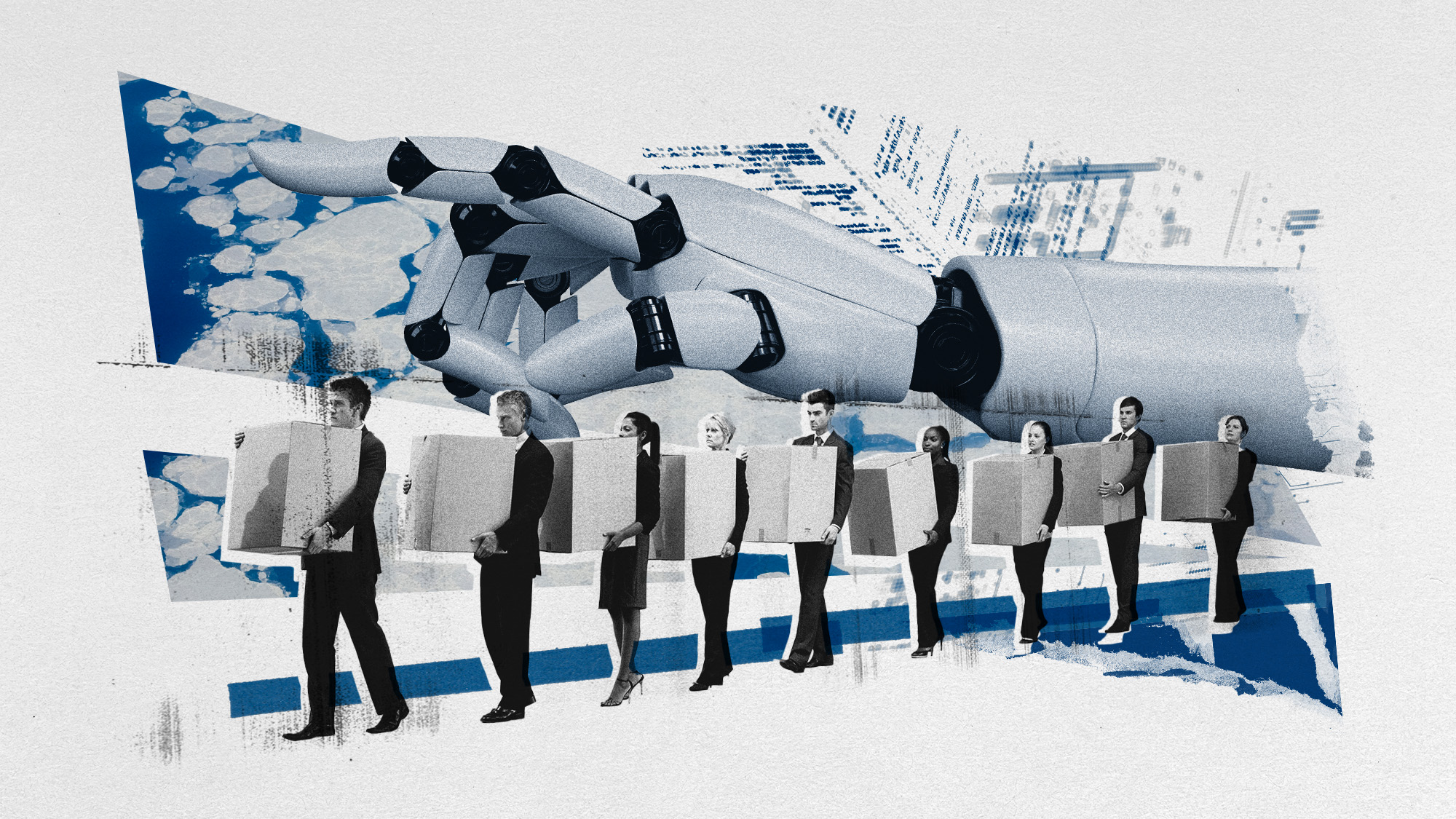 Is the job market frozen or faltering?
Is the job market frozen or faltering?Today's Big Question Layoffs raise alarms while young workers eye law school
-
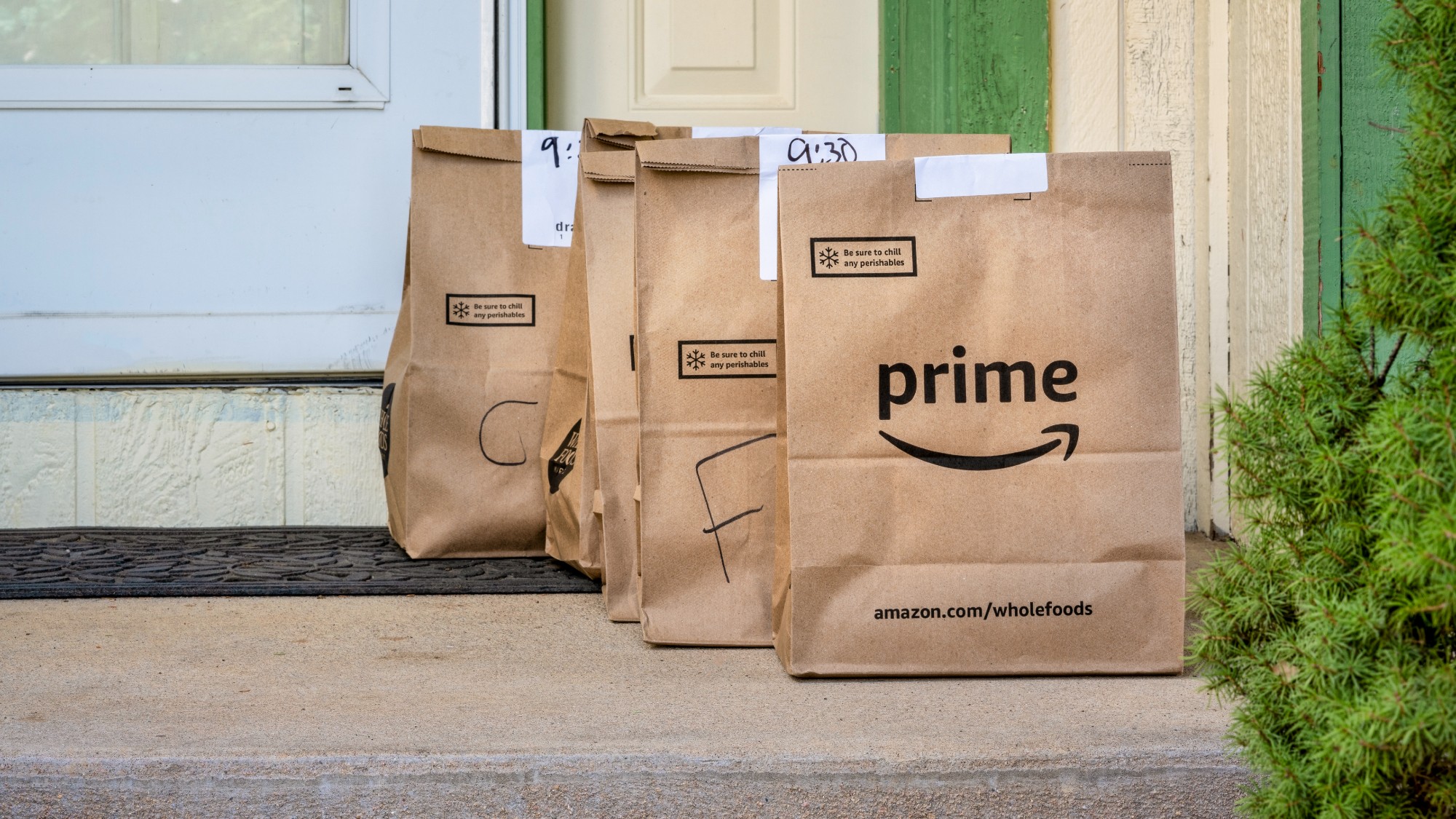 Is Amazon about to take over the grocery business?
Is Amazon about to take over the grocery business?Today's Big Question Expanded delivery will present a challenge to Walmart and Kroger
-
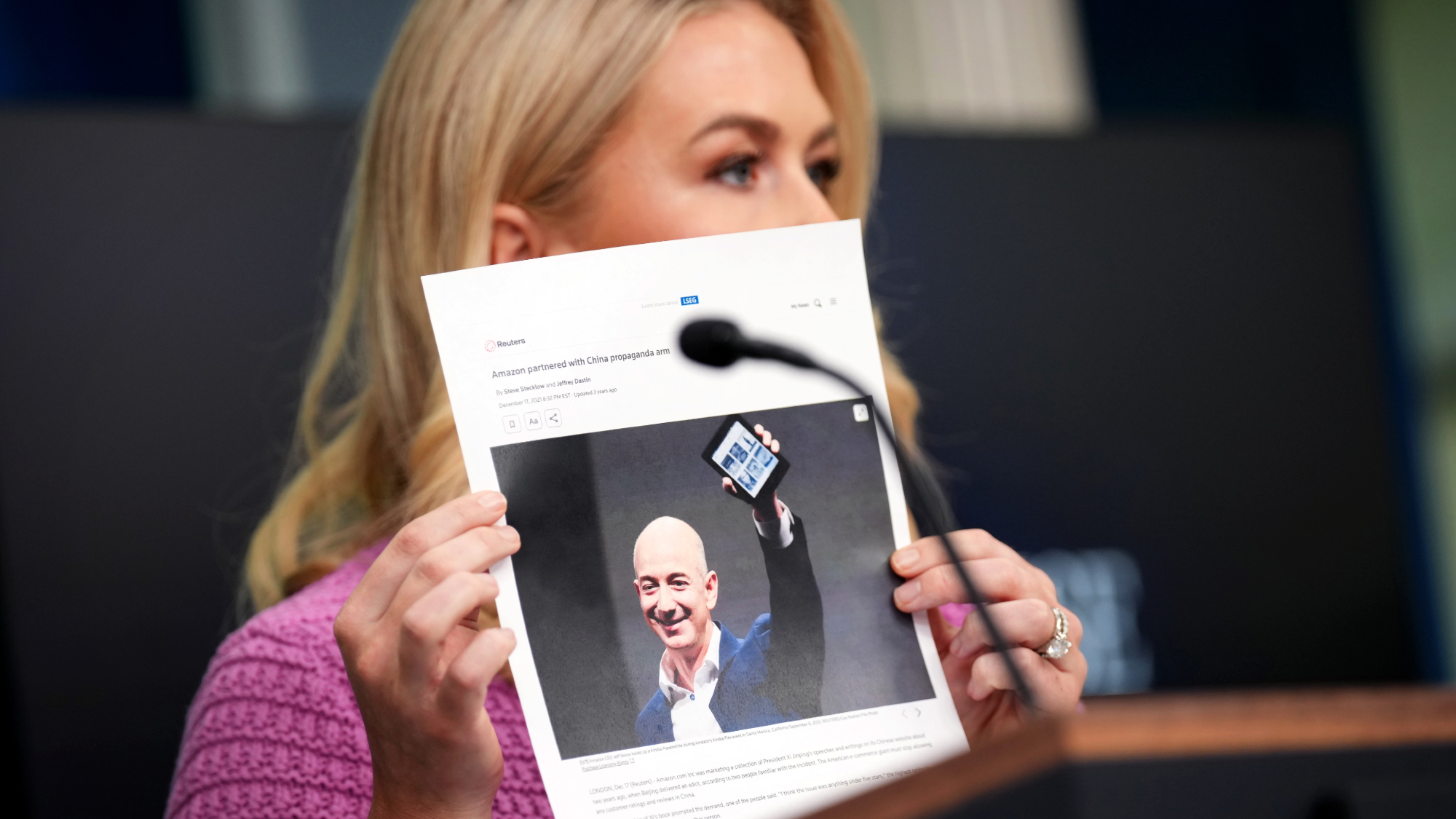 Trump calls Amazon's Bezos over tariff display
Trump calls Amazon's Bezos over tariff displaySpeed Read The president was not happy with reports that Amazon would list the added cost from tariffs alongside product prices
-
 What's Jeff Bezos' net worth?
What's Jeff Bezos' net worth?In Depth The Amazon tycoon and third richest person in the world made his fortune pioneering online retail
-
 Amazon's 'James Bond' deal could mean a new future for 007
Amazon's 'James Bond' deal could mean a new future for 007In the Spotlight The franchise was previously owned by the Broccoli family
-
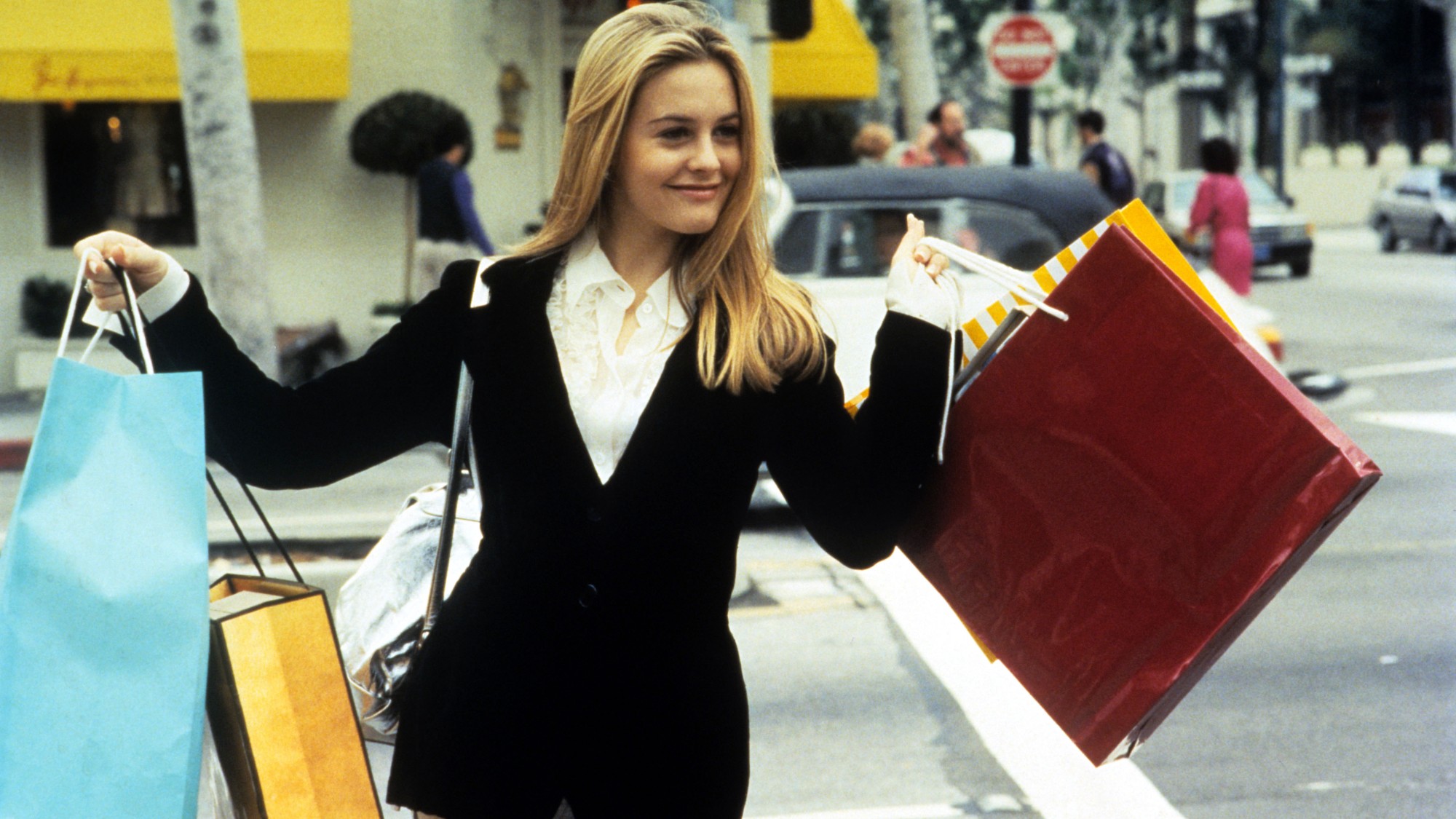 Britain's new retail returns nightmare
Britain's new retail returns nightmareIn the Spotlight Gen Z influencers and a 'poopy diaper' have shown up fault-lines in the system
-
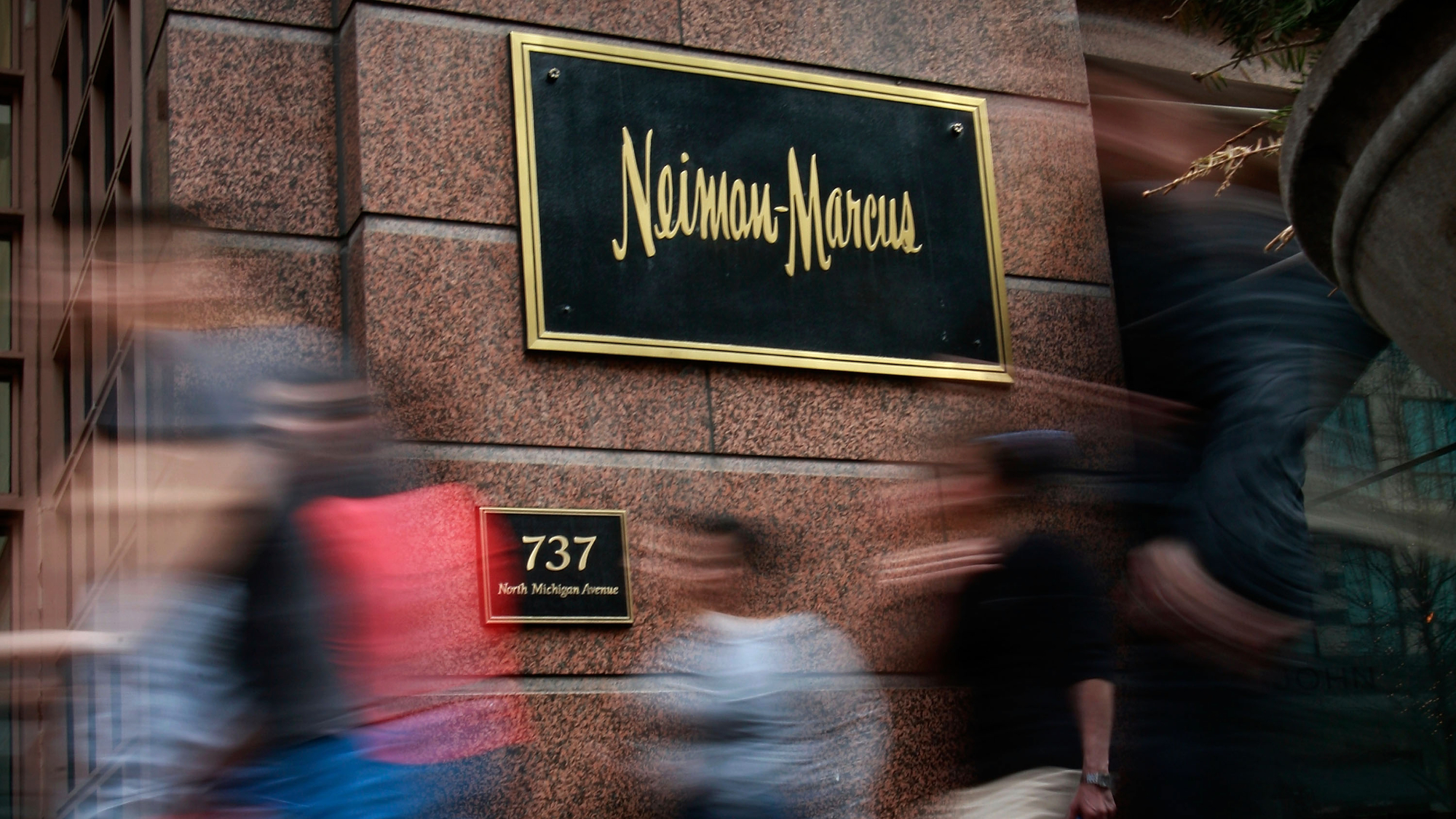 Saks buys Neiman Marcus in $2.65B deal
Saks buys Neiman Marcus in $2.65B dealSpeed Read Following the merger of the two legacy retailers, the new entity will be called Saks Global
-
 Retail media is seeing a surge this year
Retail media is seeing a surge this yearThe Explainer Amazon now makes more money from advertising than Coca-Cola's global revenue
